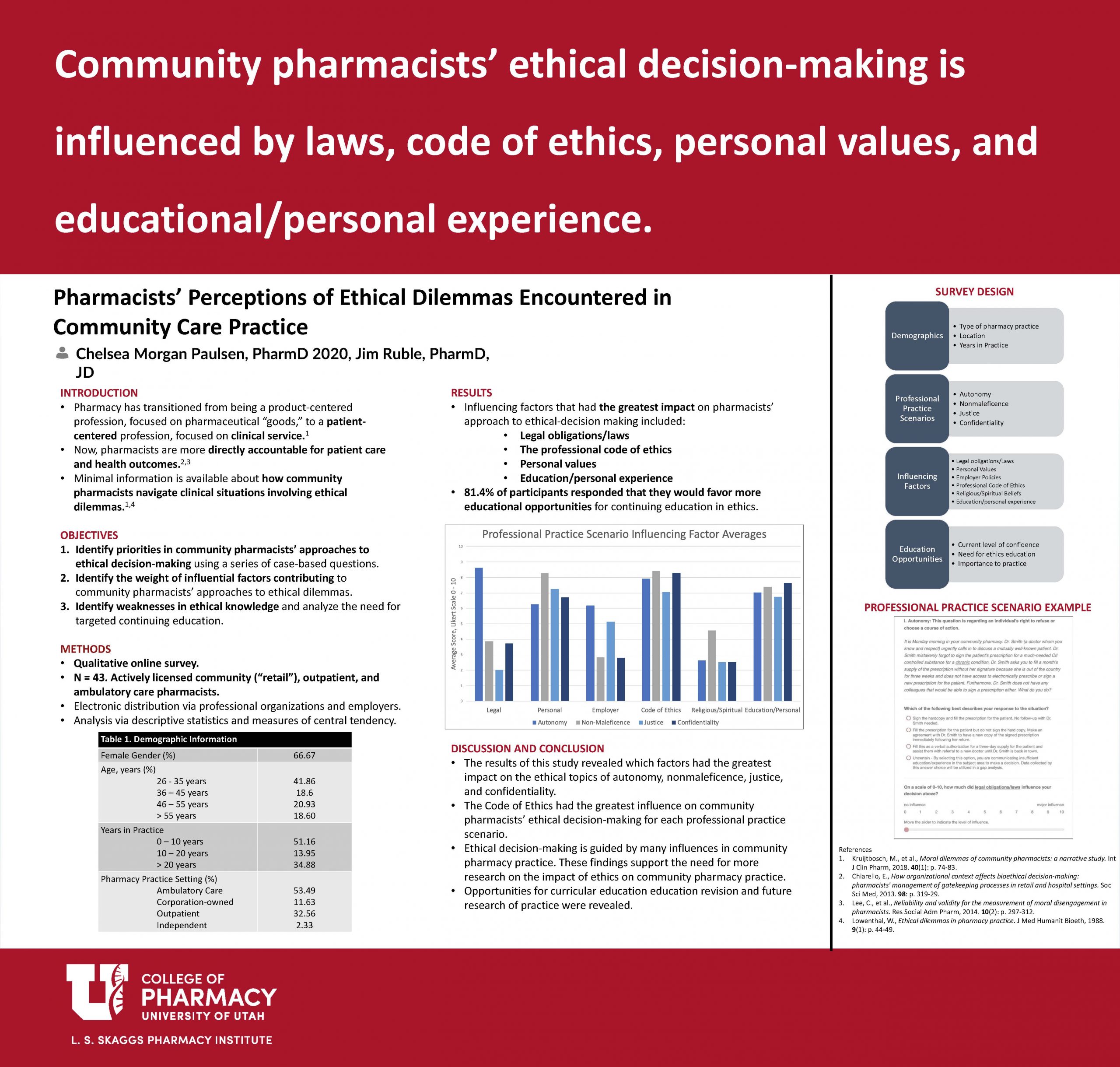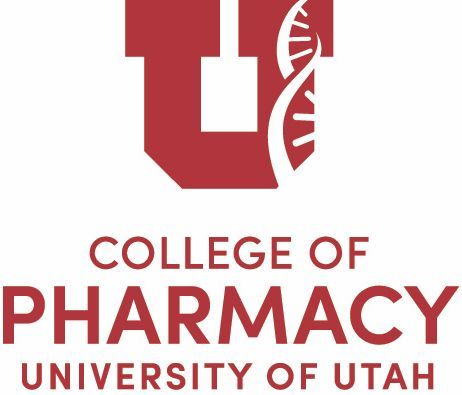Pharmacists’ Perceptions of Ethical Dilemmas Encountered in Community Care Practice

ABSTRACT
Background
This descriptive study identifies priorities in community pharmacists’ approaches to ethical dilemmas using a survey of case-based questions. The study results provide useful information about the current status of pharmacists’ ethical decision-making confidence. Factors that influence ethical decisions were identified, and how much each factor contributes to a pharmacist’s approach to ethical dilemmas was quantified.
There is an immediate need to describe the ethical reasoning capabilities of community pharmacists. What was once a product-focused industry, pharmacy has now become more patient-focused [1-3]. This shift in clinical responsibility requires pharmacists to analyze greater amounts of information. The available research on ethical awareness of community pharmacists provides some insight into the frequency and type of ethical dilemmas encountered in practice [4, 5]. Building on available research, this study sought to characterize the factors that influence community pharmacists’ decision-making processes.
Methods
A qualitative, anonymous survey was used to collect information about community pharmacists’ approaches to ethical dilemmas. The online survey was distributed electronically to community pharmacists in the United States. The ethics topics covered included autonomy, beneficence, justice, and confidentiality. The survey revealed insight into contributing factors to pharmacists’ approaches to ethical dilemmas.
This study compared influences on community pharmacists’ approaches to ethical decision-making and the weighting of each influence. Descriptive statistics and measures of central tendency were used to analyze results.
Results
It was found that personal values, code of ethics, and education/personal experience had the greatest influence on ethical decision-making when it came to the principles of nonmaleficence, justice, and confidentiality. Overall, most survey participants reported that ethical decision-making is an area where they would favor more educational opportunities.
Conclusions
This study revealed factors that influence pharmacists’ ethical decision-making in a community pharmacy setting. More importantly, it identified opportunities for curricular education revision, continuing professional education, and future targeted research.
Published in College of Pharmacy, Virtual Poster Session Spring 2020
Great job Chels! I find the differences and similarities between the outcomes in our projects exciting! It makes sense considering the different populations surveyed. It certainly brings into question if moving forward, we need to focus on varying the types of ethics education offered based on the area of pharmacy practice? Food for thought!
KC, thanks for your comment. It was so interesting to see the similarities between our sister projects. You bring up a very good point – it is possible that having more diverse ethics continuing education opportunities may be appropriate to better support practice. There is a lot of overlap between practice sites but perhaps having focused highlights to support each pharmacy setting would be helpful!
Chelsea, Nicely presented results! I also love your exchange below with KC and the curiosity that comes from having done your own research and considering how it compares to other work! As I noted on KC’s poster, I was surprised by how little the pharmacists’ religious/spiritual views influenced their decision making, particularly in the case of justice. I really thought, particularly in Utah, that it would have a greater reported influence.
Dr. Keefe, thank you for your comment. I agree – it was very surprising how little influence religious/spiritual views had on ethical decision-making! Most of our survey responses came from Utah so I expected to see a strong religious influence. It makes me wonder how the recent-ish news about pharmacists in other states denying birth control based on religion has impacted pharmacists’ decisions. Perhaps the fear of negative repercussions for acting on religious instincts may have an impact on pharmacists’ decisions.
Interesting findings! Did you notice any differences in the responses by age or practice setting? Did you ever look at ranking the influencing factors to make them pick one as the most important, or could they rate multiple factors as having the same weight? It’s also interesting the autonomy and legality seem to be the most closely associated on the bar graph.
Dr. Henchey, thank you for your comment. We did not stratify responses based on those two factors but that would certainly be an interesting finding to look at. With such a small N I didn’t feel confident to draw too much information from the subgroups.
On the survey the participants could rate multiple factors as having the same weight – each factor was on a scale of 0 to 10.
I agree – it is quite interesting that autonomy and legality were so closely related. Perhaps this may be attributable to the fact that pharmacy is such a tightly regulated profession and pharmacists may sometimes make autonomous decisions based on the protection of the law. Sometimes in patient conflicts, it is common for pharmacists to describe what the law allows them to do or not do. As a soon-to-be-licensed pharmacist, I know that I will find comfort and confidence in the protection and guidance the law provides.
Nice work, very proud of you! The four scenarios you selected were perfect. In hindsight, I wish we could have had room to look at a 5th scenario with pharmacist response to pandemic.
Great work Chelsea! This was good to read! Interesting to see what our influences our future peer’s decision making.